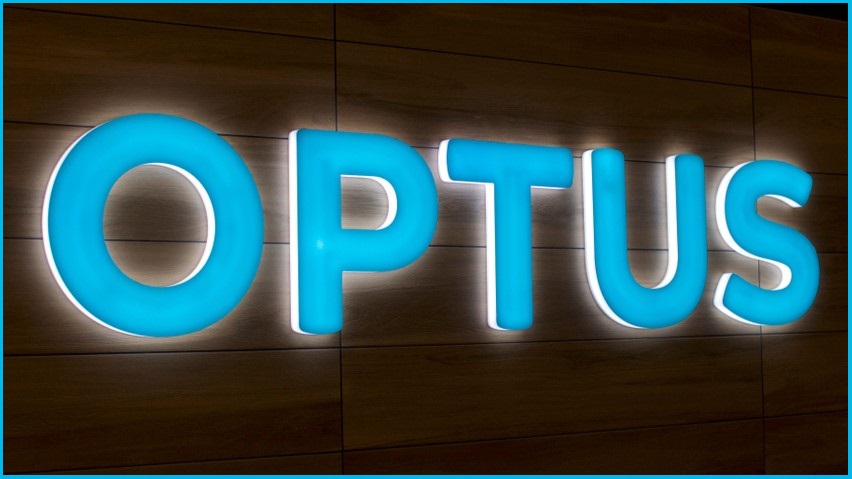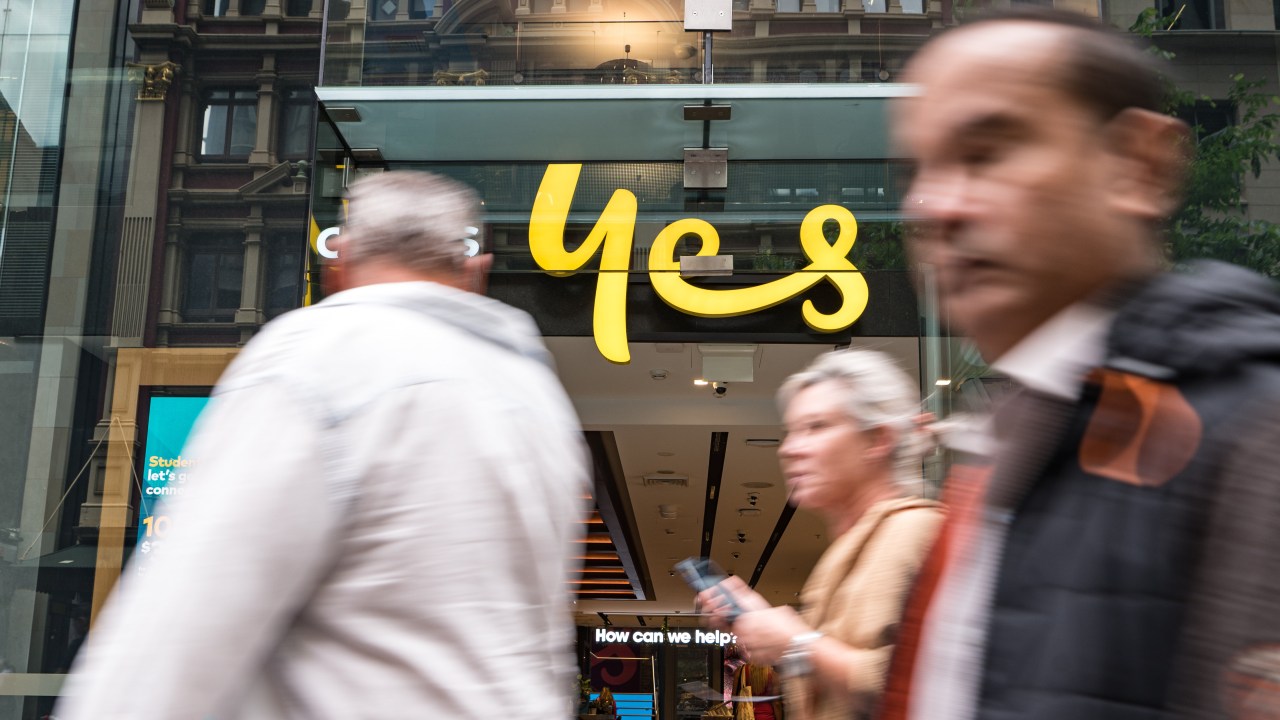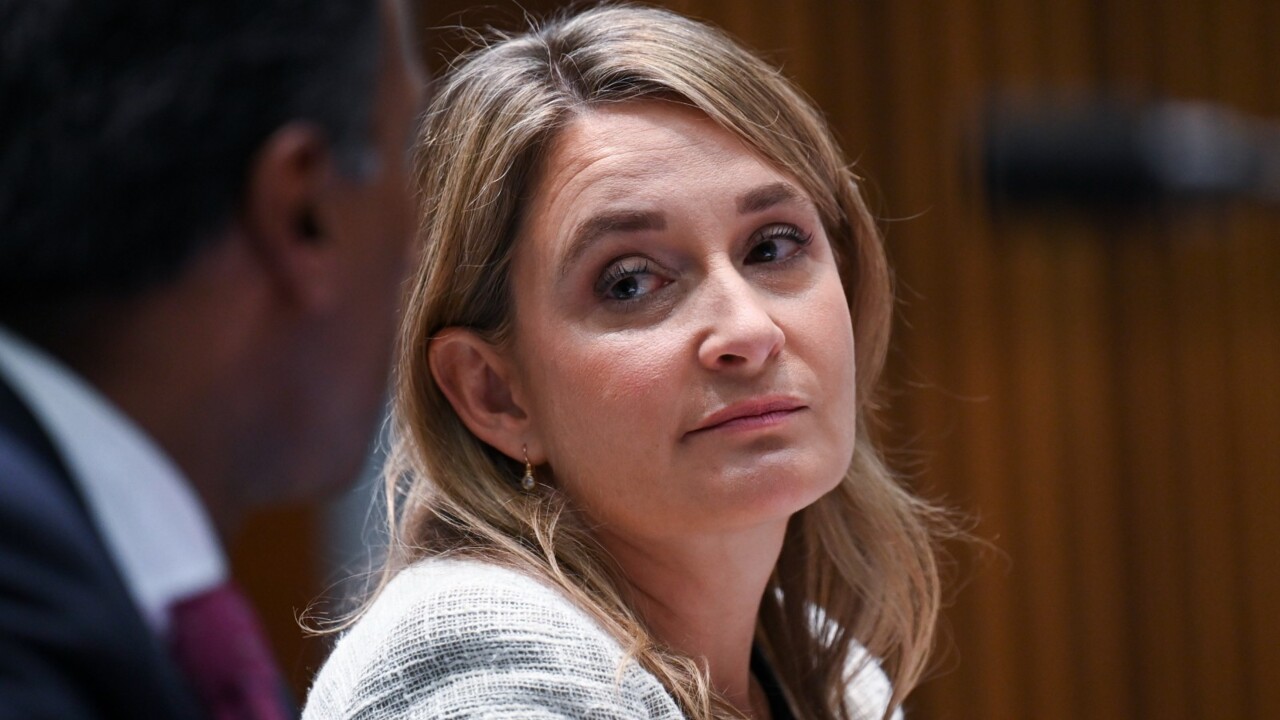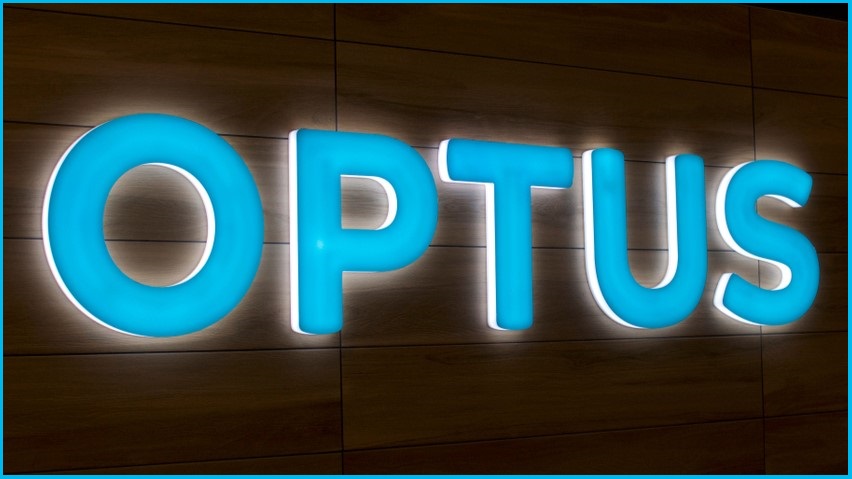
The Optus name is mud. Photo: Shutterstock
Ongoing fallout from Optus’s data breach and major outage has kept the company as Australia’s least trusted brand for the third straight quarter, according to new Roy Morgan figures that found Australians overwhelmingly distrustful of social media, telecommunications, and tech companies.
The result was yet another blow for Optus, which recently poached NBN Co CEO Stephen Rue to help it recover after a massive 2022 data breach that recently saw the company sued by regulator ACMA, a $1.5 million fine for poor emergency services data management, and a major November outage that left millions of Australians disconnected and triggered a regulatory overhaul after thousands of Triple Zero calls failed.
“We are often asked what the recovery rate is after a major brand shock like data hacks or royal commissions,” Roy Morgan CEO Michele Levine said in a webinar announcing the results of the company’s latest Trust & Distrust Quarterly Update – for which it surveys 1,000 Australians per week on an ongoing basis to track changing perceptions of nearly 240 well-known brands.
“Optus, which can’t shake off its unenviable role as Australia’s most distrusted brand, is providing some clues: we’re at 20 months and counting.”
Facebook and Instagram parent company Meta – which Levine called “the beneficiary of Optus’s inability to make any of its recovery tactics stick” – was a close second, with the recalcitrant X (formerly known as Twitter) placing seventh and global pariah Tiktok, eighth.
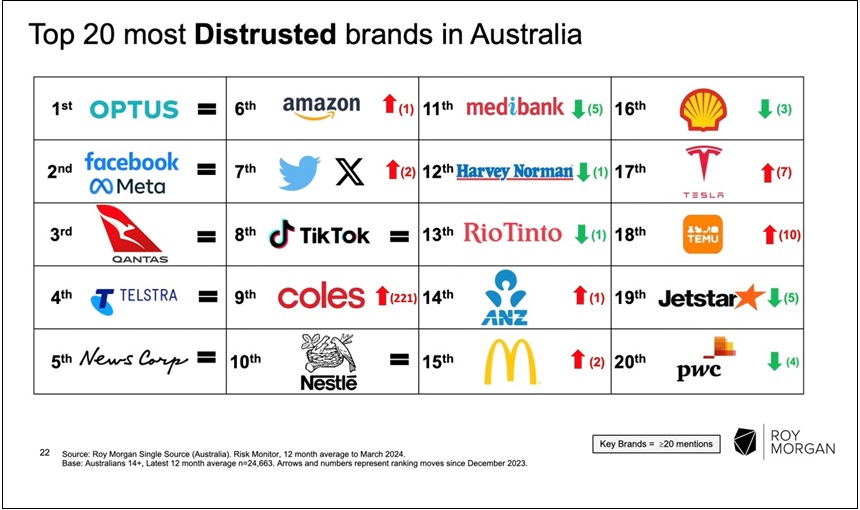
With social media and telecommunications firms the least trusted of 26 industries, the findings confirm that leaders at Facebook, Qantas, Harvey Norman, PwC and others are alienating Australians with “moral blindness,” Levine said, with global retail behemoth Amazon the sixth least trusted company, while staff-trimming Optus rival Telstra was the fourth least trusted firm – just pipping third-place Qantas, which was recently fined $100 million for ongoing fraudulent behaviour at its customers’ expense.
All of the companies on the most-distrusted leaderboard “have faced significant scandals in recent years that have led to high and enduring levels of distrust in the community,” the report notes, with the top 20 also featuring a cost-cutting Tesla (17th most distrusted) and 18th-ranked discount retailer Temu, whose honeymoon with cost-conscious Australians seems to have taken a turn for the worst.
Customer feedback savaged Chinese-based global retailer Temu, whose bargain-basement prices made it a global sensation last year – but this year copped criticism from increasingly disaffected customers complaining that the company offers products that are “dodgy and of poor quality”, collects customer data, misrepresents the appearance and nature of its products, and is, as one respondent put it, “an organisation full of scammers”.
Australia becoming a “fragile nation”
Widespread and accumulating scepticism over the motivations of profit-driven businesses is corroding Australia’s national identity, with Levine noting “a direct correlation between privacy concerns and Australians showing more distrust” – which, she pointed out, “is not an absence of trust, but an active scepticism that leaders are prioritising prices and profits over people.”
That scepticism was evident in the experience of Woolworths and Coles, which slid out of the top 20 trusted brands – Coles fell 221 places to become Australia’s ninth most distrusted brand – in the wake of increased scrutiny of their alleged profiteering and the recent announcement of a formal ACCC investigation into their business practices that, Levine said, meant “there is even worse news for the major supermarket brands that’s yet to come.”
The growing feeling that companies are not looking out for customers’ interests is contributing to a growing “national fragility” that, Levine said, “makes maintaining trust and controlling distrust a continuous priority” in a “more aggressive, anarchic, and dramatically distrusting nation.”
“COVID made us more fragile,” she said, “but when it finished, we didn’t bounce back.”
“Many corporate executives and national leaders, who were able to take inappropriate shortcuts under the cover of the pandemic, clearly got a taste for it – and they went right on behaving appallingly and even corruptly, even when their behaviour was exposed.”
For all its focus on perceived untrustworthy practices by tech companies, the survey also revealed some standouts – with Apple climbing two spots to be ranked as Australia’s fourth most trusted brand, Samsung also climbing two spots to place tenth, and Nintendo jumping 33 spots.
Bunnings remained Australia’s most trusted brand, while Medibank – which also suffered a major data breach in 2022 – had fared much better than Optus in rebuilding its brand, with Levine noting that the private health insurer, despite being the 11th most distrusted company, was “showing real signs of recovery and is now out of the top 10 most distrusted brands.”
Yet there is still work to be done: “Every corporate board should have distrust on its risk register,” Levine said.
“Trust can be lost in an instant – often due to a single misstep or breach of integrity – and rebuilding it can take years of consistent effort.”
